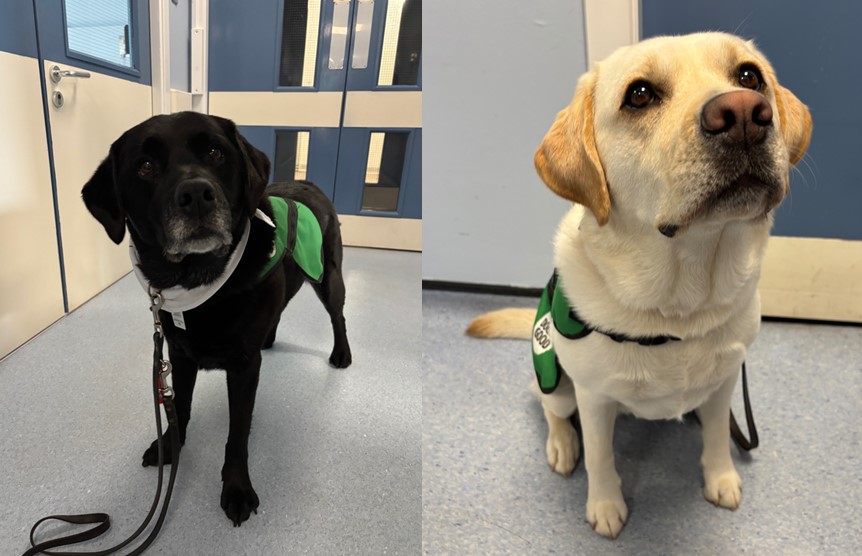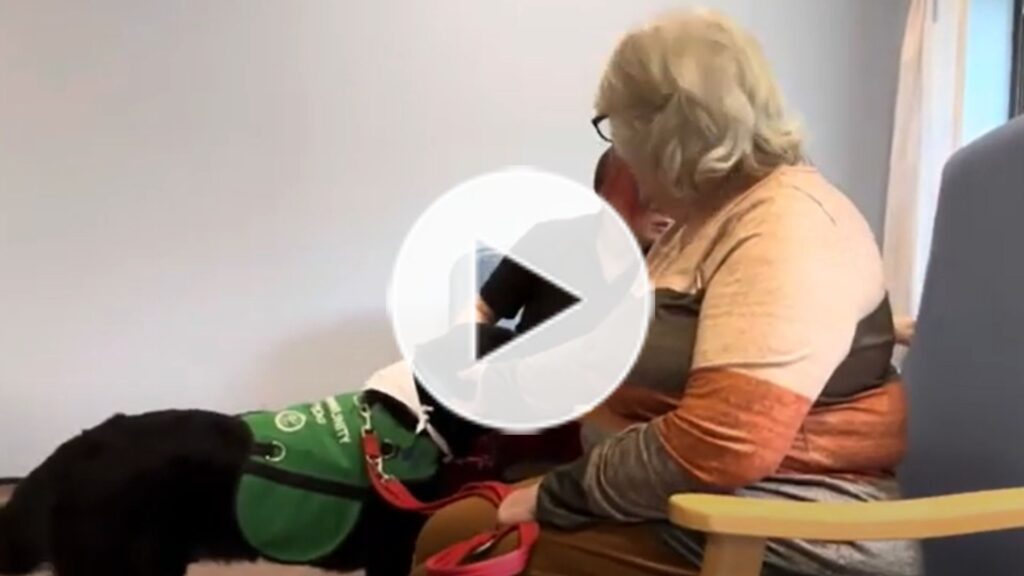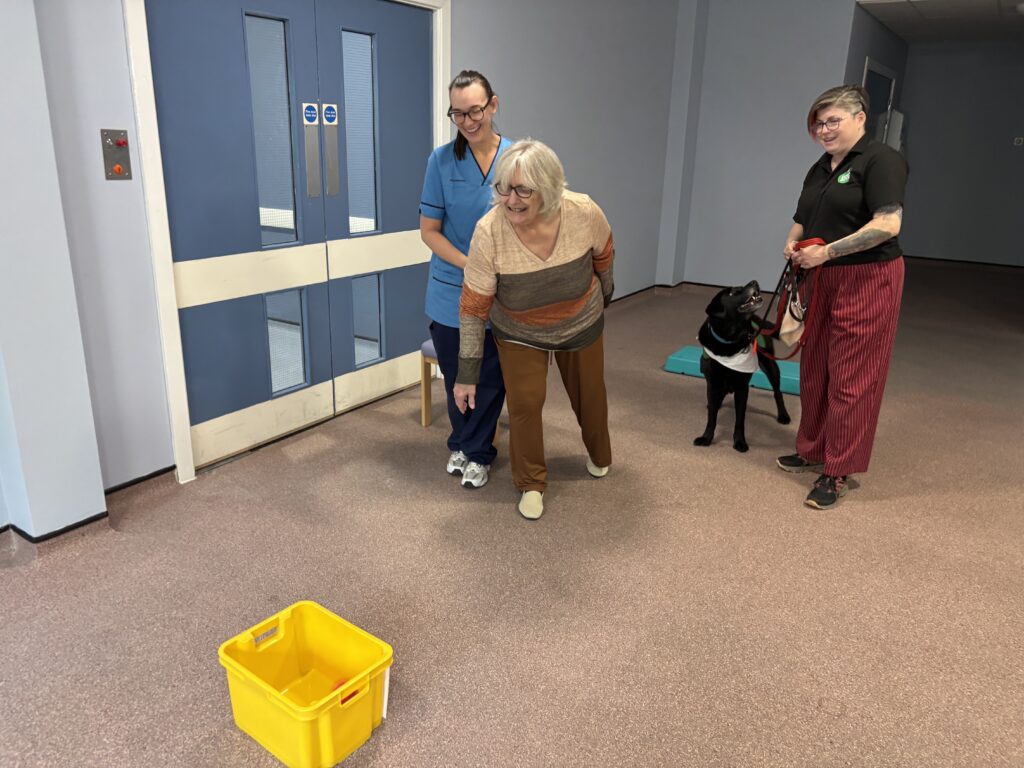
Patients recovering from strokes are benefiting from working with two Dogs for Good community dogs who are helping to improve their physical and emotional wellbeing in hospital.
Labradors Billy Magic and Marcia have been visiting Inverclyde Royal Hospital’s Larkfield Unit on a weekly basis as part of a new pilot programme designed to encourage engagement in rehab exercises, which will ultimately aid patients’ recovery.
The pair, along with their handler Carla Haizelden from the charity Dogs for Good, work with up to four patients per session.
Activities include an agility obstacle course to improve balance and build confidence, corridor scanning to help with vision loss, and exercises targeting the upper limbs like throwing balls, brushing the dogs, or putting on bandanas.
Staff on the Larkfield Unit’s Stroke Rehab Ward have watched as patients “light up” when Billy and Marcia arrive, with one woman telling how the sessions brighten up her day.

Moira Burt, 65, from Rothesay, Bute, was a patient at the IRH for around eight weeks after having a stroke at home.
She took part in the pilot, working with black lab Billy on exercises to improve her balance, including walking him around the ward and making her way round cones and over steps.
The mum-of-two, who was herself a dog trainer for 40 years, said working with Billy had helped improve her confidence and made her want to try harder with her rehab activities.
Moira said: “I think this pilot is a great idea – it’s really exceptional.
“It does a lot for my self-confidence and it lets me understand where I’m going wrong because Billy is correcting it.
“You get the relationship with the dog and it builds up your confidence.
“I feel absolutely tremendous after doing the exercises – I always thoroughly enjoy it, and the dog makes you want to try harder.
“They also just brighten up your day and keep you occupied for a wee while.”
Another patient, who has aphasia and struggles with her speech, has been heard saying “hello” and “well done” to the dogs during her sessions.
Sandra Forbes, Specialist Occupational Therapist at the Larkfield Unit, said: “The Dogs for Good pilot has been really beneficial to our ward.
“It has been highly motivational for the patients and it’s been exciting to see the dogs being used for this purpose and the progress that’s been made.
“It is an adjunct to our existing therapy – it’s something else that we can offer patients.
“We have seen better engagement from our patients, they smile as soon as they see the dogs – as do the staff – it really makes everyone’s weeks.”

Joanna Short, Specialist Stroke Physiotherapist, said: “We’ve had a few patients who have struggled with their rehab, and having the dogs here has been amazing – their faces light up and they are far more engaged.
“One of our patients who recently went home managed to get his furthest walking distance with one of the dogs.
“We’ve also been doing some high level balance obstacle courses, so the dogs will do an agility course and the patient will go round and do that with the dog. It’s helping to increase their activity levels.”
The pilot with Dogs for Good, which brings people and dogs together to help make everyday life possible, will run for eight weeks at which point a review will be carried out to assess its effectiveness.
Each session measures the impact on patients’ focus and concentration, social interactions, confidence, self esteem, and communication.
The programme’s flexible structure aligns with the Allied Health Professional goals of promoting movement, improving balance, enhancing fine and gross motor skills, and fostering emotional wellbeing.
Carla Haizelden, Senior Community Dog Practitioner with Dogs for Good, explained that all of the community assistance dogs are bred by the Banbury-based charity and begin their training from around eight weeks old up to one year or 18 months, by which point they are working one-on-one with a dedicated trainer.
Dogs for Good works with individuals, families and groups who find the world difficult to access, often due to disability, dementia, autism or mental ill health.
The support that Dogs for Good and its dogs provide enables people to better access the world around them and live happier, healthier and more independent lives.
Carla said: “Our programme with patients at the IRH is designed to help with motivation and confidence to interact with the rehab activities staff need them to do.
“Interacting with the dogs also gives them emotional wellbeing and also with practical movements to increase their physical activity.
“We’ve been coming for a few weeks and in that time we’ve worked with some of the same people throughout that period.
“We’ve seen some really great progress, with significant changes week-by-week. The patients’ faces light up as soon as the dogs come in, which is a great bonus in itself.”
